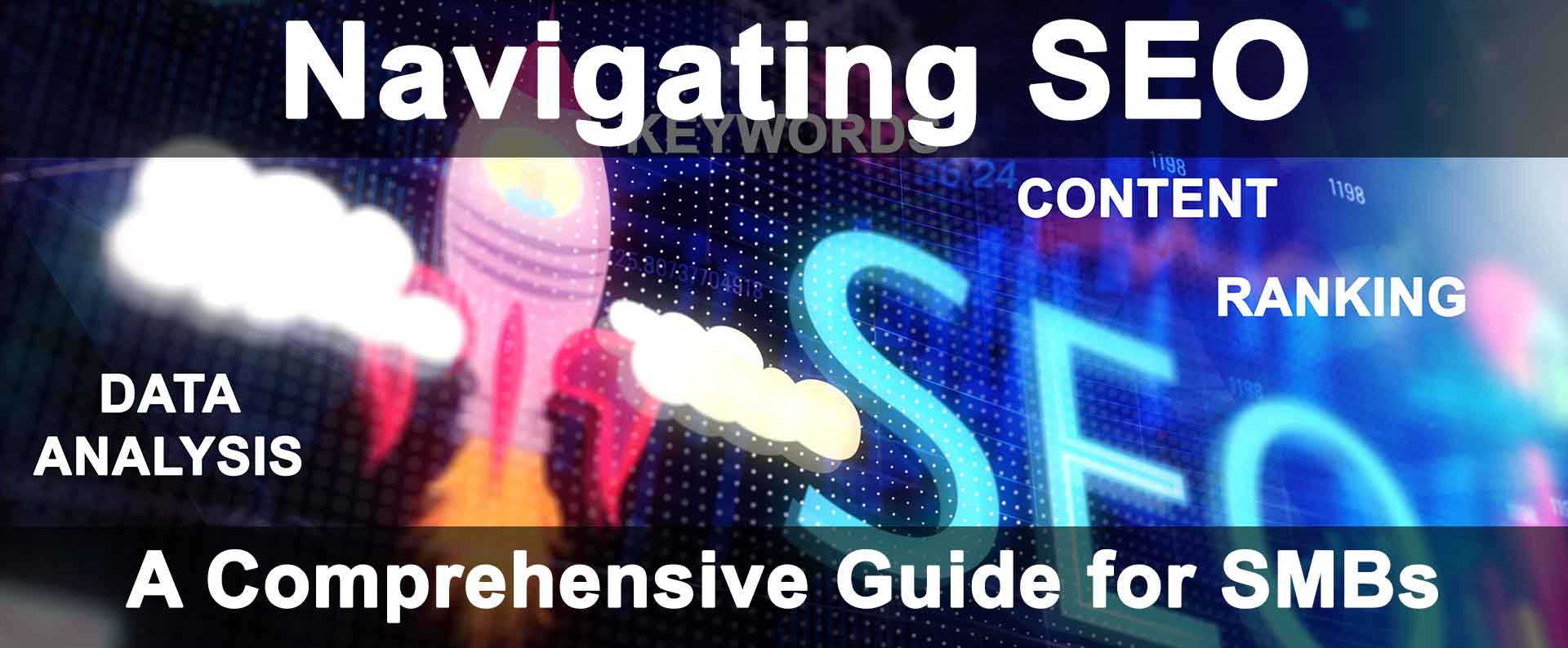In order to thrive in today's competitive digital world, small and medium businesses (SMBs) need to harness the power of the web. One of the most effective and affordable methods to improve online visibility, awareness, and attract your ideal target audience is through search engine optimization (SEO).
This comprehensive guide will try to help demystify SEO, explain its significance, and provide actionable strategies that can be implemented to optimize your company's online presence and reach the desired target market.
Understanding SEO: What Is It?
SEO is the process of improving a website’s visibility in search engine results pages (SERPs) such as Google. When users type queries into search engines like Google, they are presented with a list of ranked results. The goal of SEO is to ensure that your website appears as high as possible in the ranked results, ideally near the top on the first page.
SEO involves various techniques, including keyword optimization, content creation, technical enhancements, and link building, all aimed at improving both the quality and quantity of targeted organic traffic to your site.
Why SEO Matters for Small & Medium Businesses
- Increased Visibility:
Many online experiences begin with a search engine query. If your business doesn't rank well in the search results, potential customers may never find you. Effective SEO helps ensure that your website appears in relevant search results.
- Cost-Effective Marketing:
Compared to traditional forms of advertising, SEO is a cost-effective strategy. While it often requires an initial investment in time and resources, the long-term benefits of organic and natrual search traffic far outweigh the costs.
- Building Credibility & Trust:
Websites appearing near the top of search results are often viewed as more credible and trustworthy than those further down. When optimizing your site for SEO, often a positive side effect is the enhancement of your brand’s reputation, including increased consumer confidence.
- Enhanced User Experience:
Proper SEO practices emphasize creating a user-friendly website. This includes fast loading times, mobile optimization, and easy navigation, all of which contribute to a better experience for your visitors.
- Competitive Advantage:
Many small businesses still overlook SEO. By implementing effective strategies, you can gain an edge over competitors who are not utilizing SEO to its fullest potential.
Key SEO Strategies for Small & Medium Businesses
To navigate the world of SEO effectively, consider the following strategies:
- Conduct Keyword Research:
Identify the keywords and phrases that your target audience is using to find products or services related to your business. Use tools like Google Keyword Planner, SEMrush, or Ahrefs to discover high-volume and low-competition keywords. Once identified, incorporate these keywords naturally into your website content.
- Optimize On-Page Elements:
Focus on optimizing the on-page elements of your website, including:
- Title Tags: Ensure each page has a unique title that reflects its content and includes relevant keywords.
- Meta Descriptions: Write compelling meta descriptions that encourage users to click on your link. Include target keywords but keep it concise.
- Headers (H1, H2, H3): Use headers to structure your content, making it easier for both search engines and users to understand.
- Image Alt Text: Use descriptive alt text for images, which helps search engines understand the content of your images and improves accessibility.
- Create High-Quality Content:
Content is king in the world of SEO. Regularly publish informative, engaging, and relevant content that addresses your audience's needs and interests. Consider starting a blog, creating how-to guides, or producing video content. Quality content not only helps with SEO but also positions your business as an industry authority.
- Build Backlinks:
Backlinks, or links from other websites that point to your site, are essential for SEO. They signal to search engines that your content is credible and valuable. Build backlinks through guest blogging, partnerships, and by creating shareable content. Engage with influencers in your industry to expand your reach.
- Implement Local SEO:
For SMBs with a physical location, local SEO is crucial. Optimize your Google My Business profile by ensuring your business information is accurate and complete. Encourage satisfied customers to leave positive reviews, and make sure your business is listed consistently across online directories.
- Ensure Mobile Optimization:
With the increasing use of mobile devices for internet browsing, having a mobile-friendly website is essential. Use responsive design techniques to ensure your website looks great and functions well on all devices. Google prioritizes mobile-friendly sites in its search rankings.
- Monitor & Analyze Performance:
SEO is not a one-time effort; it requires continual monitoring and adjustment. Use tools like Google Analytics and Google Search Console to track your website’s performance and gather insights on user behavior. Regularly analyze this data to refine your SEO strategy.
Wrapping It Up
Navigating the complexities of SEO can seem daunting for small and medium businesses, but the rewards are undeniable. By understanding the importance of SEO and implementing effective strategies, you can enhance your online presence, attract more visitors, and ultimately grow your business.
Investing time and resources into SEO is a proactive way to ensure your business stands out in the digital landscape. Remember, SEO is an ongoing process, so stay informed about the latest trends and continuously refine your strategies to achieve lasting success. Embrace the power of SEO today, and watch your business thrive online.













